Workshop
Dynamic and Hybrid Cooperative Efforts
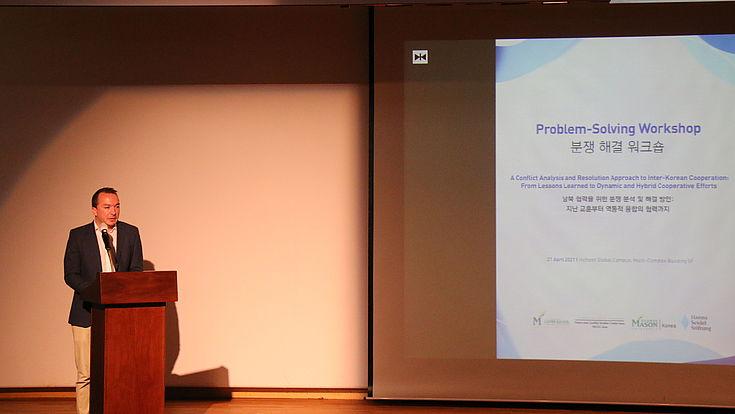
Photo Credit: George Mason University Korea
The event started with the opening remarks of Dr. Ronald Wilson, Program Coordinator and Assistant Professor at GMUK, and Felix Glenk, Project Manager for DRRK in HSF Korea, analyzing past results from November 2020, the first HSF-PACSC problem-solving workshop. Dr. Wilson emphasizes that the problem-solving workshop should think outsides of investment and returns. It is all about what are you going to sacrifice to make a better tomorrow. After that, Felix Glenk gave an overview of what HSF and HSF Korea aiming for and did for the unification of the Korean peninsula. Using the German case as an example, he asserted the international collaborative work to reconcile and overcome the trace of conflict.
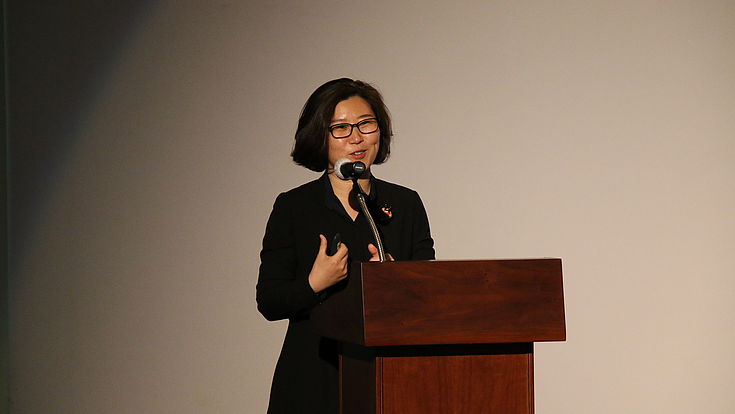
Photo Credit: George Mason University Korea
The first lecture was presented by Dr. Soyoung Kown, Assistant Professor at GMUK, about the ‘Inter-Korean Cooperation as a Security Paradigm.’ Dr. Kwon elaborated the reason why inter-Korea cooperation and security cannot coexist together. Therefore, she suggested ways to solve this issue with the human security perspectives. As different kinds of tensions exist in the Korean peninsula, it is important to predict the future and ready for what is coming up. Dr. Arthur Romano, Assistant Professor at GMUK, lead the Question-and-Answer session afterward. There were several interesting questions raised from the floor about how to change the perspectives on the human rights concept or how to make a sustainable connection with DPRK without facing sanctions and limits.
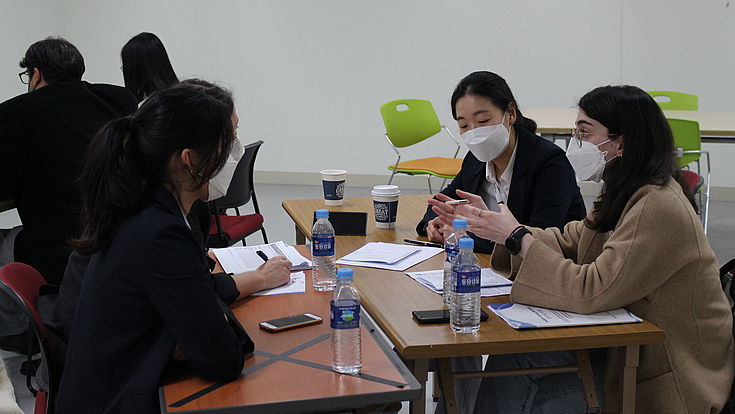
Photo Credit: George Mason University Korea
After the brief Q&A session, panels and participants separated into four small groups to discuss goals for inter-Korean cooperation and shared their perspectives about inter-Korean cooperation. NGOs, professors, representatives, and students shared a common belief in peaceful reunification and reconciliation of the Korean peninsula. They tried to create inter-Korean cooperation projects in the environmental aspects utilizing Sustainable Development Goals (SDGs).
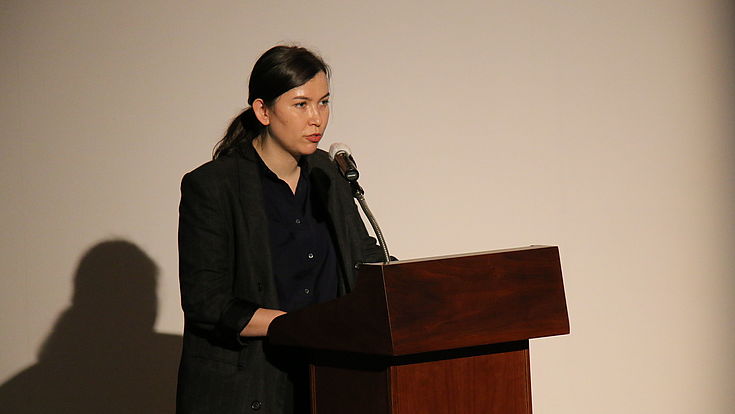
Photo Credit: George Mason University Korea
The afternoon session was started with the lecture of Ewa Motylińska, Visiting Fellow at the Institute of Far Eastern Studies. She offered practical examples about sustainable development and green initiatives for cooperation while utilizing Johan Galtung’s transformation and transcending process. To implement those conflict cases into the Korean peninsula, emphasizing shared roots, building trust is crucial. Right after the lecture, participants divided into the group again and had a second discussion to think about the applicable future project. Along with Ewa Motylińska’s presentation that goes deep into practical examples, participants were able to draw several relevant solutions.
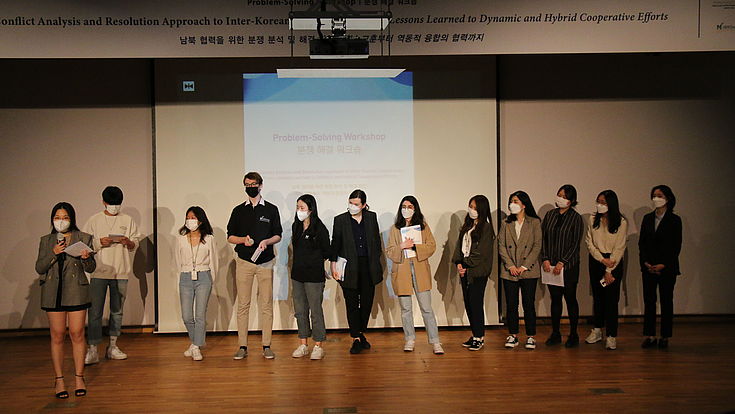
Photo Credit: George Mason University Korea
The last event was a group presentation. Students from every four groups come up to the stage and share their idea to improve inter-Korean cooperation. A variety of interesting ideas was introduced such as e-lecture exchange and Peace Cooking Competition. Dr. Bernhard Seliger, the representative of HSF Korea, had the honor to do the closing remarks online. He stated the importance of SDG as a justification in a situation and increase cooperation potential in North Korea. “As a yardstick for human rights in North Korea, SDG might be less important compared to a traditional analysis covering same issues in different words, but as a tool for practical cooperation with North Korea it might be very important in future,” said Dr. Seliger. The closing remark included sharing takeaways about the workshop and planning for the future conference.
